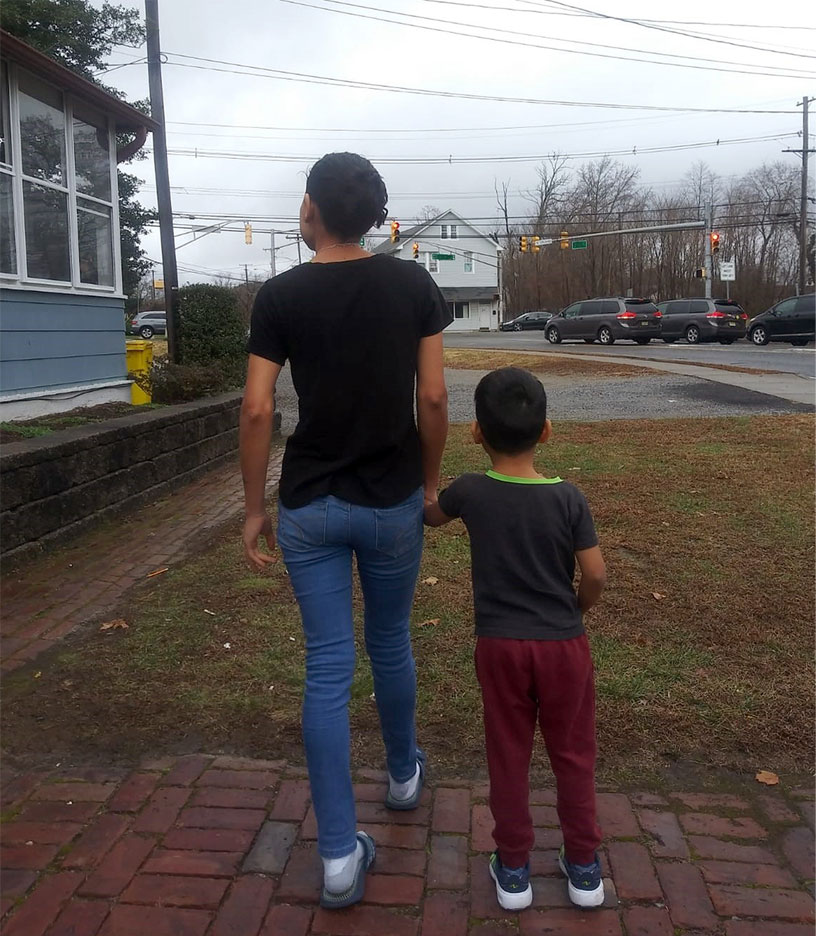IMMIGRATION
- Winning Classwide Protection for Older Juveniles
- Preventing the Removal of Children with Special Immigrant Juvenile Status
- Advocating to Reunite Separated Families
- Launching the New Jersey Consortium for Immigrant Children
- Easing the Way for Parents to Identify Alternative Caregivers for Their Children
- Celebrating Victories!
Advocating to Reunite Separated Families
1,556
Children separated
after July 1, 2017,
and released before
June 26, 2018*
2,815
Children separated
and in federal custody on
June 26, 2018
1,142
Children separated
between June 26, 2018,
and December 21, 2019
5,513
Total separated children
Unknown
Children in this group who have been reunified with the separated parent
2,168
Children in this group
who had been
reunified with the
separated parent as
of January 13, 2020
152
Children in this
group who had been
reunified with the
separated parent as of
December 21, 2019
2,320
Total documented
reunifications with
separated parents
Since July 1, 2017, the government has separated more than 5,500 immigrant children from their parents, and these separations continue. The most recent government data documents the reunification of 2,320 (fewer than half) of these children with the parent from whom they were separated. Hundreds more children have been discharged to “sponsors,” usually adult family members. Still other separated children remain, and continue to be placed, in federal custody.
These numbers are not wholly reliable because, as reported by the Inspector General for the Department of Homeland Security (DHS) in November 2019, “DHS did not have the information technology (IT) system functionality needed to track separated migrant families during the execution of the Zero Tolerance Policy.” As a result, the government cannot ensure an accurate count of these families. Moreover, the government is not tracking or otherwise accounting for children who were separated from other close family members – including siblings, grandparents, and aunts and uncles – even when those family members raised them.
Throughout the family separation crisis, Lowenstein has worked closely with the legal service providers (LSPs) that directly represent children in federal custody. The firm has provided ethics guidance about representing very young children; appeared on behalf of the LSPs in Ms. L v. ICE, the ACLU class action challenging family separation; advocated for the release and reunification of individual children in conjunction with the LSPs and the Young Center (which holds the federal contract to provide “best interest” recommendations about the most vulnerable children); and represented reunified families in immigration proceedings.
The firm’s current work focuses on trying to get the government to transmit to the LSPs and Young Center child advocates timely and appropriately detailed information about family separation. From the beginning of the crisis, a lack of information has stymied effective advocacy on behalf of the children. Of the children separated since June 26, 2018 (when the Ms. L court issued a preliminary injunction aimed at stopping the practice), more than 220 were under five years old at the time of the separation. Children this young often cannot communicate basic information about the fact of the separation or the full names and whereabouts of their parents.Yet the government has resisted establishing a coherent system for communicating this information, along with explanations of the basis for the separations, to the children’s lawyers and advocates.
The firm recently surveyed the LSPs and child advocates and established that caseworkers in the federally contracted shelters share contact information for the parents in only 11 percent of cases, explain the basis for the separation in only 29 percent of cases, and advise the child’s lawyer or advocate of reunification planning in only 45 percent of cases. Partly in response to the survey, the court has ordered the parties to confer with the firm about how to ensure more open communication with the children’s lawyers and advocates so that they can represent their young clients effectively.
In addition, Lowenstein assisted the ACLU in preparing a motion to enforce the June 2018 preliminary injunction in Ms. L, in the hope of stemming the tide of ongoing separations. On January 13, 2020, the court issued a mixed decision. On the one hand, the court declined to hold the government to stricter standards in separating families based on a parent’s alleged “criminal history.” On the other hand, the court required the government to verify by DNA testing any doubts about parentage before separating families on this basis. And the court reaffirmed that when separations are necessitated by a parent’s illness, the government must reunify the family as soon as the parent has recovered.
While pursuing such classwide remedies, the firm has continued to represent reunified families and to advocate on behalf of individual children. One of the families we represent was recently featured in a NJ Spotlight article that tells a now too-familiar story of compounded pain and the struggle toward resilience.
